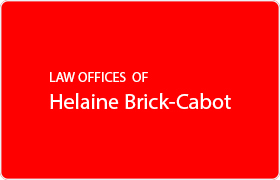Lincolndale Child Support Lawyer, New York
Sponsored Law Firm
-
 x
x

Click For More Info:
-
Law Offices of Helaine S. Brick-Cabot
26 Gedney Way Chappaqua, NY 10514» view mapDivorce & Family Law Where You Need to Be
Helaine S. Brick-Cabot, Esq. established her own law firm in 2005, as an innovative, effective problem solver with a solid foundation in business.
800-780-5310
William J Bolger
Adoption, Alimony & Spousal Support, Criminal, Child Support
Status: In Good Standing
Margaretha L. Gravett
Estate Planning, Family Law, Child Support, Elder Law
Status: In Good Standing Licensed: 24 Years
 Helaine Brick-Cabot Chappaqua, NY
Helaine Brick-Cabot Chappaqua, NY AboutLaw Offices of Helaine S. Brick-Cabot
AboutLaw Offices of Helaine S. Brick-Cabot Practice AreasExpertise
Practice AreasExpertise
